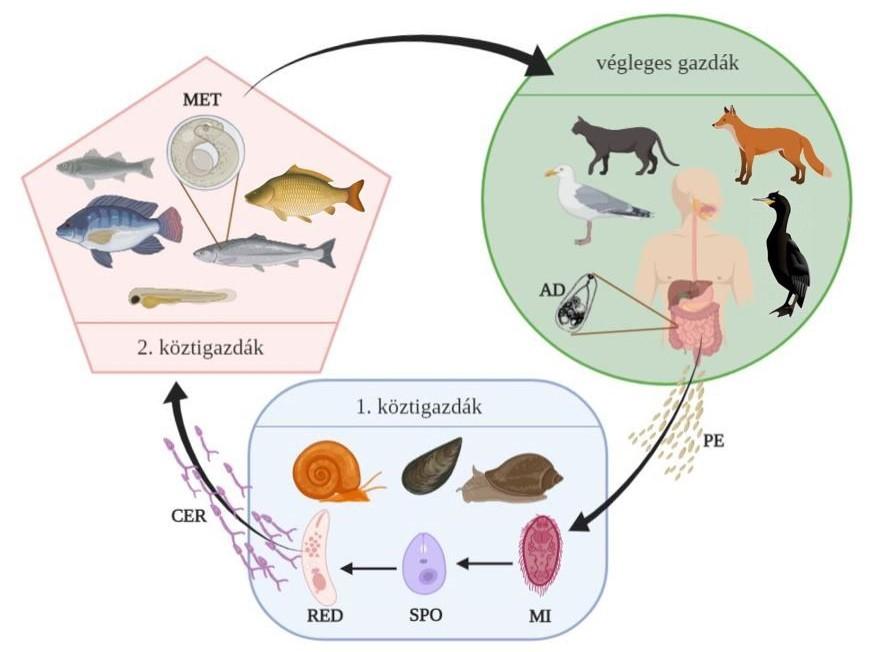
Monitoring of the Digenean flukes in freshwater predatory fishes and assessing their zoonotic risk
Digenean flukes are flatworms which can be characterised by their complex life cycle. Species in Hungary parasitize a freshwater snail as the first intermediate host. The second intermediate host is usually a fish species, these life stages the so called metacercariae develop in in the different organs (skin, muscles, inner organs etc.). Trematodes reach their adult life stage in the final host which are water birds or fish-eating mammals. A lot of flukes are known to cause human illness (zoonosis) as well which is particularly common in the Far-East where the fish is often eaten in raw condition. This is not characteristic in Hungary, however there is a chance regarding some preservation techniques (smoking and pickling) that living metacercariae remain in the fish meat. During our study, the zoonotic flukes in wild predatory fishes will be monitored in the natural freshwaters of Hungary. These fish species are popular targets of anglers and their consumption shows an increasing tendency due to their excellent quality of meat. The collected trematodes are identified based on their morphological features; moreover species identification will be confirmed by molecular methods. This way more information could be acquired which fish species are infected by certain trematode species and which organs are affected by the parasites. Experimental infection of rodents will answer the question if the flukes can infect mammals, which makes the risk of zoonosis higher. If we receive positive results then viability experiments help us to decide that how long the virulence of the trematode larvae last under various heat and chemical treatments.
Martina Gyöngy, PhD student